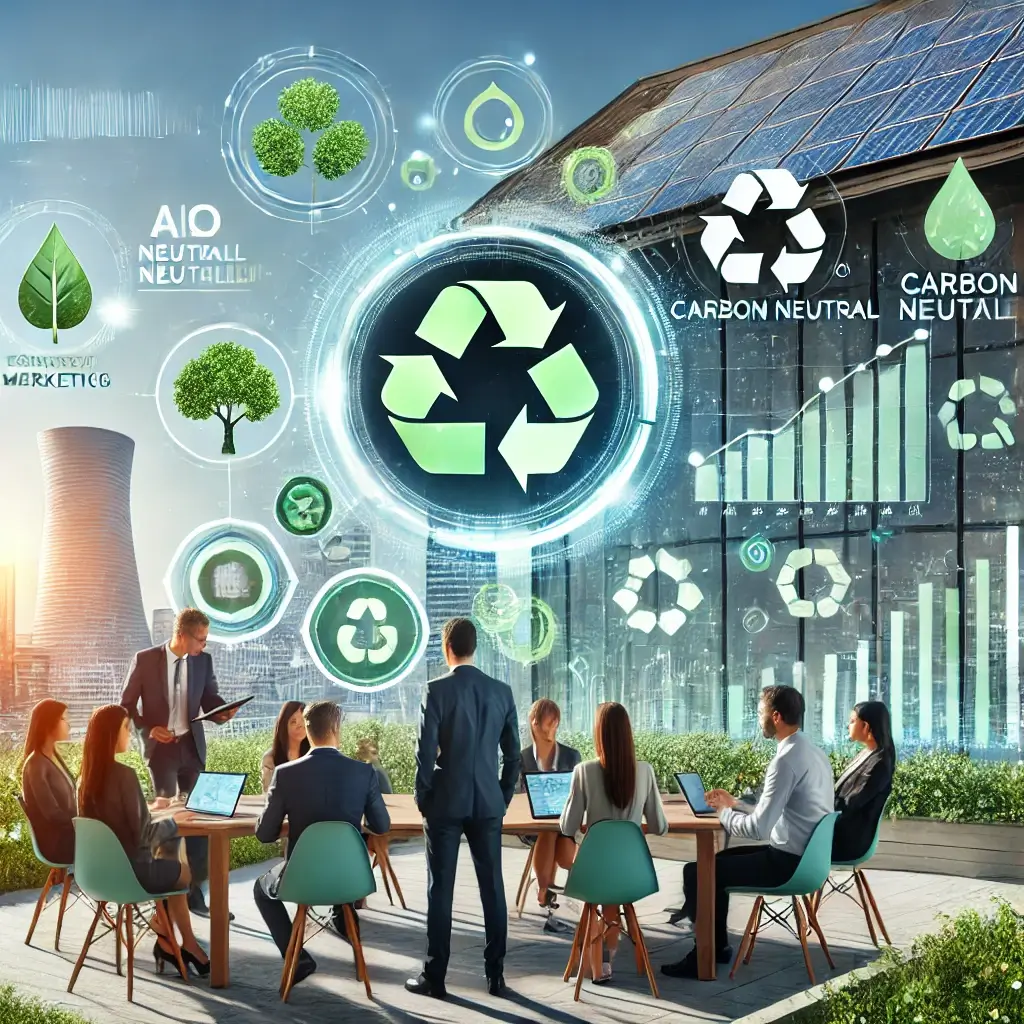The Growing Demand for Sustainable Marketing in 2025
As we move into 2025, the demand for sustainable marketing practices is becoming a critical priority for businesses worldwide. Consumers are increasingly aware of environmental challenges, with recent surveys indicating that over 70% prefer brands committed to sustainability (Nielsen, 2024). For marketing executives and SEO specialists, this shift offers an opportunity to integrate eco-friendly strategies not just as a compliance measure but as a driver of brand equity and differentiation.
What Sustainable Marketing Really Means
Sustainable marketing entails more than showcasing environmentally friendly products. It involves embedding sustainability across every touchpoint of a brand’s operations, from product development and sourcing to advertising and customer interactions. By leveraging innovative tools such as AI-driven optimization and blockchain for transparent supply chains, companies can ensure their practices resonate with a modern audience that values both authenticity and action.
Introduction to Actionable Strategies
This guide will explore actionable strategies to help businesses implement sustainable marketing practices in 2025, supported by the latest industry trends, case studies, and data-driven insights.
SEO-Driven Sustainable Marketing Practices for 2025
SEO-Driven Sustainable Marketing Practices for 2025
Transparent Content Marketing Builds Trust
Transparency in communicating sustainability initiatives boosts consumer trust. By creating content that highlights eco-friendly practices, brands can improve both SEO rankings and customer engagement.
Real-World Example of Transparent Content Success
Example: An e-commerce brand used keyword-optimized blog posts about their sustainable packaging efforts. This strategy increased organic traffic by 35% within six months. Furthermore, a Statista (2024) report emphasized that blogs emphasizing transparency achieve higher engagement rates compared to generic marketing materials.
Leveraging Eco-Certifications in Marketing
Integrating relevant certifications such as “Carbon Neutral” or “Fair Trade” into your website metadata and ad campaigns can attract eco-conscious consumers while improving visibility on search engines.
Certification Impact on Consumer Trust
Highlighting certifications helps build credibility. For instance, a coffee company prominently displaying its Fair Trade certification in its campaigns saw a 25% increase in customer sign-ups (Forbes, 2023).
Shifting to Digital for Sustainable Reach
Interactive Digital Campaigns
Benefits of Digital-First Marketing Approach
Shifting from print to digital campaigns minimizes waste and increases reach. AI tools can refine audience targeting, ensuring minimal resource usage with maximal ROI.
Digital Campaign Success Story
Case Study: A skincare brand adopted a digital-first approach, replacing traditional flyers with dynamic online ads. This change not only reduced marketing costs by 40% but also boosted online conversions by 22%. Recent findings by the International Marketing Sustainability Forum (2024) showed that digital campaigns using AI optimization resulted in 50% higher ROI compared to traditional marketing methods.
Embracing Circular Economy in Marketing
Circular Economy Integration
Recycling Initiatives That Drive Engagement
Brands can embrace circular economy principles by encouraging recycling and reuse. For example, an electronics brand’s initiative to collect old devices for recycling offered customers discounts and increased retention rates by 15% (Circular Economy Journal, 2023).
Marketing Benefits of Circular Initiatives
Marketing efforts that promote recycling resonate strongly with environmentally conscious audiences and position companies as forward-thinking leaders in sustainability.
Technology’s Role in Sustainable Marketing
AI and big data play a transformative role in sustainable marketing. Tools like predictive analytics can help identify consumer behavior trends, enabling brands to tailor campaigns that are both impactful and resource-efficient. For instance, machine learning algorithms can predict the types of eco-friendly products consumers are most likely to buy based on historical data. This approach ensures minimal waste and maximum alignment with consumer preferences.
The Future of Sustainable Marketing
Sustainability is no longer optional; it’s essential for staying competitive in 2025 and beyond. By adopting transparent messaging, leveraging certifications, utilizing AI-driven campaigns, and integrating circular economy principles, brands can align their growth strategies with consumer expectations and global environmental goals. As sustainability shapes consumer behavior, businesses that lead with purpose will not only thrive but also contribute to a greener and more equitable future.
Research Sources
References
Nielsen. “Sustainability in Consumer Behavior: Key Insights for 2024.” Published 2024. [Link]
Statista. “The Impact of Green Marketing on Consumer Preferences.” Published 2024. [Link]
Forbes. “Circular Economy Trends in Marketing.” Published 2023. [Link]
International Marketing Sustainability Forum. “AI and Digital Campaign Effectiveness.” Published 2024. [Link]
Circular Economy Journal. “Recycling Initiatives and Consumer Engagement.” Published 2023. [Link]
